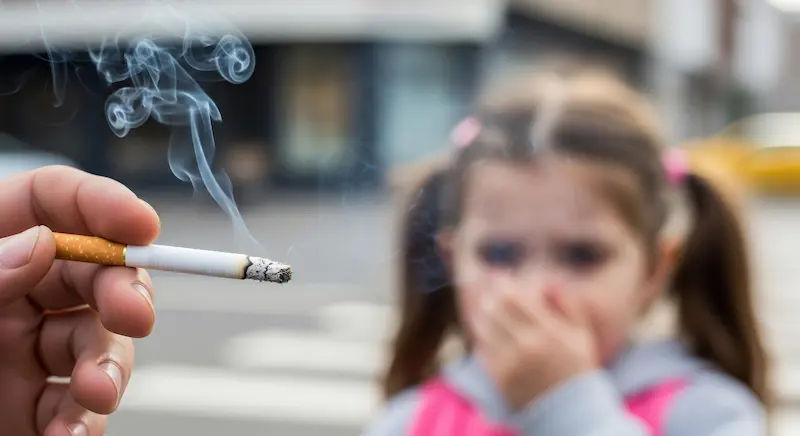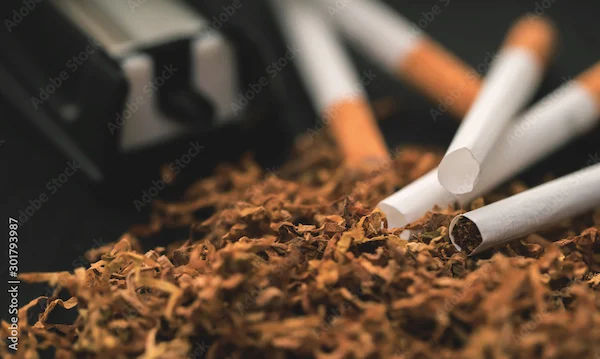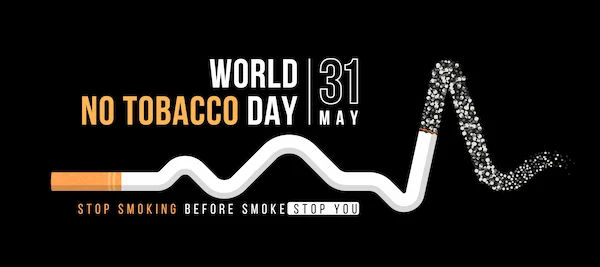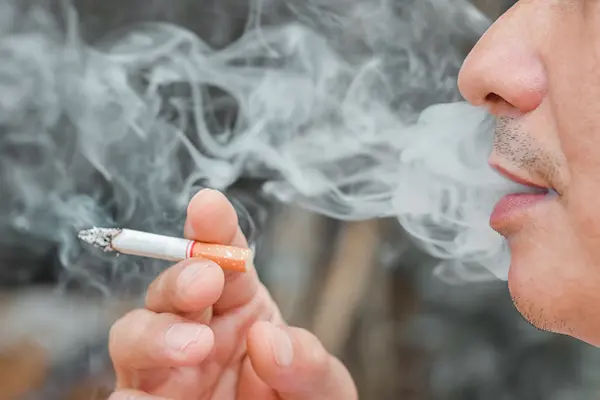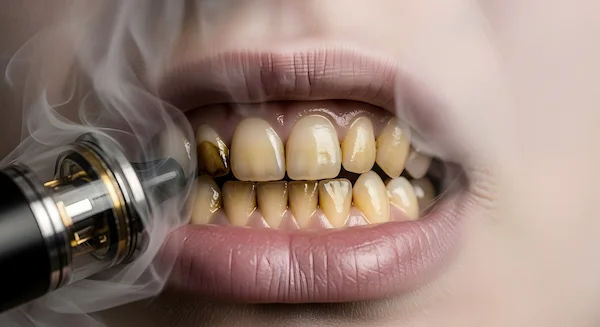A Complete Guide to Smoking Cessation: Proven Strategies That Work
Discover proven strategies to quit smoking and overcome nicotine addiction. Learn about health benefits, withdrawal management, medications, and lifestyle changes for a lasting smoke-free future.

Written by Dr. Mohammed Kamran
Reviewed by Dr. Dhankecha Mayank Dineshbhai MBBS
Last updated on 13th Jan, 2026

Introduction
Deciding to quit smoking is one of the most powerful choices you can make for your health. It’s a journey that promises a longer life, more energy, and freedom from addiction. But let's be honest—it's also challenging. Nicotine is a powerfully addictive substance, and breaking free requires a solid plan, support, and the right strategies. This comprehensive guide is designed to be your roadmap. We'll move beyond simple advice and delve into the science of addiction, explore proven smoking cessation methods, and provide practical tools to manage cravings and prevent relapse. Whether you're attempting to quit for the first time or the tenth, this guide will equip you with the knowledge and confidence to succeed and build a healthier, smoke-free future.
Why Quit Smoking? The Life-Changing Benefits
Understanding the "why" behind your decision is the most critical fuel for your journey. The benefits of smoking cessation are not just a distant dream; they begin almost immediately and accumulate for a lifetime.
Immediate Health Benefits (20 Minutes to 48 Hours)
Your body begins to repair itself the moment you put out your last cigarette. According to the American Cancer Society, your heart rate and blood pressure drop to normal levels within just 20 minutes. Within 12 hours, the carbon monoxide level in your blood drops to normal, allowing your cells to get the oxygen they need. This rapid improvement is a powerful motivator to stick with your smoking cessation plan from day one.
Long-Term Health Gains (2 Weeks to 15 Years)
The long-term rewards are even more profound. Within 2 weeks to 3 months, your lung function and circulation improve significantly, making physical activity easier. After 1 year, your risk of coronary heart disease is cut in half. The 5-year mark sees your risk of cancers of the mouth, throat, esophagus, and bladder halved. After 15 years of quitting, your risk of coronary heart disease becomes that of a non-smoker's. Quitting is the single best thing you can do for your long-term health outlook.
Financial and Lifestyle Perks
The advantages extend far beyond health. Calculate how much you spend on cigarettes weekly, monthly, and yearly—the result is often staggering. That money can be redirected towards vacations, hobbies, or savings. You'll also enjoy a better sense of smell and taste, whiter teeth, fresher breath, and the elimination of the smell of smoke on your clothes and hair. The freedom from needing to step outside for a smoke is a significant lifestyle upgrade.
Consult a Specialist for the best advice
Understanding Nicotine Addiction
To defeat your addiction, it helps to understand your opponent. Nicotine addiction is a two-pronged problem: physical dependence and behavioural habit.
The Physical Hook: How Nicotine Rewires Your Brain
Nicotine stimulates the release of dopamine, a neurotransmitter associated with pleasure and reward. Your brain quickly gets used to this artificial stimulation and rewires itself to crave it. When the nicotine level drops, you experience withdrawal symptoms—irritability, anxiety, difficulty concentrating—which drive you to smoke again to feel "normal." This cycle is the core of physical addiction and a primary target of smoking cessation tools like NRT.
The Habit Loop: Triggers and Behavioural Cravings
Smoking is often tied to specific routines or emotions—your morning coffee, work breaks, stress, or socialising. These are "triggers." Your brain has formed strong neural pathways linking these activities to the act of smoking. Successful smoking cessation involves identifying these triggers and creating new, healthier routines to break the habit loop. This is where behavioural strategies become essential.
Crafting Your Personal Smoking Cessation Plan
A goal without a plan is just a wish. Taking a structured approach dramatically increases your chances of success.
Step 1: Set Your Quit Date and Prepare
Choose a date within the next two weeks. This gives you time to prepare mentally and physically without losing motivation. Before your quit date, start changing your routines. If you smoke with your coffee, switch to tea. If you smoke after a meal, get up and brush your teeth immediately instead.
Step 2: Inform Your Support System
Tell your family, friends, and coworkers about your decision to quit. Their encouragement and accountability can be invaluable. Ask them to be patient, especially during the first few weeks when withdrawal symptoms may make you irritable. Consider finding a quit buddy who is also trying to quit.
Step 3: Remove Triggers from Your Environment
On the day before your quit date, make your environment a non-smoking zone. Get rid of all cigarettes, lighters, and ashtrays. Thoroughly clean your house, car, and clothes to eliminate the smell of smoke, which can be a powerful trigger. This act of purification symbolises a fresh start.
Proven Methods to Quit Smoking
There is no one-size-fits-all approach to smoking cessation. The best method is the one that works for you. Often, a combination of methods is most effective.
Going "Cold Turkey" – What to Expect
Quitting abruptly without any NRT or medication is how many people attempt to quit. The advantage is that you break the addiction immediately. The challenge is that withdrawal symptoms can be intense and peak within the first 3 days. If you choose this path, it is crucial to have a strong support system and a toolkit of distraction techniques ready. If you experience severe anxiety or depression during this process, it is important to consult a doctor. You can easily connect with a healthcare professional online through Apollo24|7 for support and guidance.
Nicotine Replacement Therapy (NRT): A Detailed Look
NRT is a cornerstone of modern smoking cessation. It works by delivering small, steady doses of nicotine into your body without the tar and other poisonous chemicals found in cigarettes. This helps manage physical withdrawal symptoms while you work on breaking the behavioural habits.
- Patches: Provide a continuous flow of nicotine throughout the day. Good for managing baseline cravings.
- Gum & Lozenges: Allow you to control the dose when a craving hits. They act quickly to address acute cravings.
- Inhalers & Nasal Sprays: Deliver nicotine to the bloodstream faster, most closely mimicking the hit of a cigarette. Often requires a prescription.
You can often combine a patch (for background relief) with gum or lozenges (for breakthrough cravings). It's always best to discuss an NRT plan with a doctor to determine the right dosage and combination for your level of addiction.
Prescription Medications (Varenicline & Bupropion)
For those who have struggled with other methods, prescription drugs can be highly effective.
- Varenicline (Champix): Works in two ways: it reduces withdrawal symptoms and blocks nicotine from reaching the receptors in the brain, making smoking less satisfying if you slip up.
- Bupropion (Zyban): An antidepressant that reduces nicotine cravings and withdrawal symptoms.
These medications require a prescription and have specific protocols for use. Consulting a doctor on Apollo24|7 is a convenient way to get a professional evaluation and see if these prescription options are a suitable part of your smoking cessation plan.
Navigating Nicotine Withdrawal Symptoms
Withdrawal is a sign that your body is healing. Knowing what to expect makes it less frightening.
Common Symptoms and Their Timeline
Symptoms usually begin within a few hours of your last cigarette, peak around day 3, and gradually subside over 3-4 weeks. Common symptoms include:
- Intense cravings: Usually last 5-10 minutes.
- Irritability, frustration, anger: Due to your brain craving dopamine.
- Anxiety or depression: It's common to feel low as your brain chemistry adjusts.
- Restlessness and difficulty concentrating.
- Increased appetite and weight gain: Nicotine is an appetite suppressant.
- Coughing and sore throat: Your lungs are beginning to clear themselves.
Practical Tips for Managing Cravings and Irritability
When a craving hits, remember the "4 Ds":
- Delay for 5-10 minutes; the urge will pass.
- Drink a glass of water or sip a cold juice.
- Distract yourself—take a walk, call a friend, play a game on your phone.
- Deep breathe slowly and deeply until the craving subsides.
For irritability, communicate with those around you and ensure you get plenty of rest. Light to moderate exercise is one of the most effective ways to boost mood and reduce stress during this time.
Overcoming Relapse: It's a Journey, Not a Failure
A lapse (a single slip) does not have to become a full relapse. Most people try to quit several times before succeeding. The key is to learn from the experience.
Learning from a Slip-Up
Instead of feeling guilty, analyse what happened. What was the trigger? Were you stressed, drinking, or socialising? What could you do differently next time? Use this information to strengthen your plan.
Strategies to Get Back on Track Immediately
If you smoke a cigarette, don't use it as an excuse to buy a pack. Stop immediately. Remind yourself of your reasons for quitting. Reach out to your support person. Get rid of any remaining cigarettes. A single mistake is just a bump in the road, not the end of your journey.
Healthy Habits to Support Your Smoke-Free Life
Building a new, healthy identity is the final step to lasting freedom.
Diet and Nutrition for Ex-Smokers
Focus on eating plenty of fruits, vegetables, and whole grains. Drink lots of water to help flush toxins from your body. Keep healthy snacks like carrot sticks, nuts, or sugar-free gum on hand to manage oral cravings and avoid weight gain.
Exercise as a Powerful Tool for Cessation
Regular physical activity is a miracle drug for recovery. It reduces stress, improves mood, boosts energy, and helps manage weight. Even a daily 30-minute walk can make a significant difference in your smoking cessation journey.
Mindfulness and Stress Management Techniques
Since stress is a major trigger, learning new ways to cope is essential. Practices like meditation, deep breathing exercises, and yoga can help you manage stress without reaching for a cigarette. They increase your self-awareness, helping you recognise cravings early and respond to them calmly.
Conclusion
Quitting smoking is a profound act of self-care. It's a journey that demands courage, patience, and resilience. While the path may have challenges, every craving you overcome is a victory. Every smoke-free day allows your body to heal a little more. Remember, you are not alone. Millions have walked this path before you and succeeded. Use the strategies in this guide, lean on your support system, and don't hesitate to seek professional help. The destination—a healthier, longer, and freer life—is absolutely worth the effort. If you're struggling to manage withdrawal symptoms or need personalised medical advice, consider consulting a doctor online with Apollo24|7. They can help you create a safe and effective cessation plan tailored to your needs. Take that first step today. Your future self will thank you.
Consult a Specialist for the best advice
Consult a Specialist for the best advice

Dr Suseela
General Physician
5 Years • MBBS
Bengaluru
Apollo Medical Center, Marathahalli, Bengaluru

Dr. Mainak Baksi
General Practitioner
13 Years • MBBS , MD (MPH)
Howrah
Mainak Baksi Clinic, Howrah
(50+ Patients)

Dr. Rajib Ghose
General Physician/ Internal Medicine Specialist
25 Years • MBBS
East Midnapore
VIVEKANANDA SEBA SADAN, East Midnapore

Dr. Imtiyaz Khan
General Practitioner
6 Years • MD (Physician), Fellowship in Critical Care,AFIH
Bengaluru
Apollo Clinic, Sarjapur Road, Bengaluru

Dr. Sriya Mukherjee
General Practitioner
10 Years • MBBS
Kolkata
SEVA POLYCLINIC, Kolkata
Consult a Specialist for the best advice

Dr Suseela
General Physician
5 Years • MBBS
Bengaluru
Apollo Medical Center, Marathahalli, Bengaluru

Dr. Mainak Baksi
General Practitioner
13 Years • MBBS , MD (MPH)
Howrah
Mainak Baksi Clinic, Howrah
(50+ Patients)

Dr. Rajib Ghose
General Physician/ Internal Medicine Specialist
25 Years • MBBS
East Midnapore
VIVEKANANDA SEBA SADAN, East Midnapore

Dr. Imtiyaz Khan
General Practitioner
6 Years • MD (Physician), Fellowship in Critical Care,AFIH
Bengaluru
Apollo Clinic, Sarjapur Road, Bengaluru

Dr. Sriya Mukherjee
General Practitioner
10 Years • MBBS
Kolkata
SEVA POLYCLINIC, Kolkata
More articles from Smoking Cessation
Frequently Asked Questions
What is the hardest day when quitting smoking?
For most people, the peak of physical withdrawal symptoms and cravings occurs around day 3 after quitting. This is when nicotine has fully left your system. Having a strong support plan in place for this day is crucial.
Can my lungs fully heal after I quit smoking?
Yes, to a remarkable degree. While some damage from long-term, heavy smoking may be permanent, your lungs will begin to repair themselves immediately. Cilia regrow and begin to clear mucus and reduce infection risk within weeks. Lung function can improve significantly within months.
What are some natural ways to deal with nicotine cravings?
Besides the 4 Ds, some people find alternatives like chewing on licorice root or sunflower seeds, brushing their teeth, using a stress ball, or practicing mindfulness meditation helpful for managing cravings naturally.
How much weight will I gain after I quit?
The average weight gain after smoking cessation is between 5 to 10 pounds. This is manageable by adopting healthy habits. Staying active, drinking plenty of water, and keeping healthy snacks available can help you control your weight while you quit.
Is vaping a good way to quit smoking?
The health community is divided. While some smokers have used e-cigarettes to transition away from traditional cigarettes, they are not FDA-approved as a smoking cessation device. They still deliver nicotine and other chemicals, and their long-term health effects are not fully known. Proven methods like NRT and prescription medications are generally recommended first.
